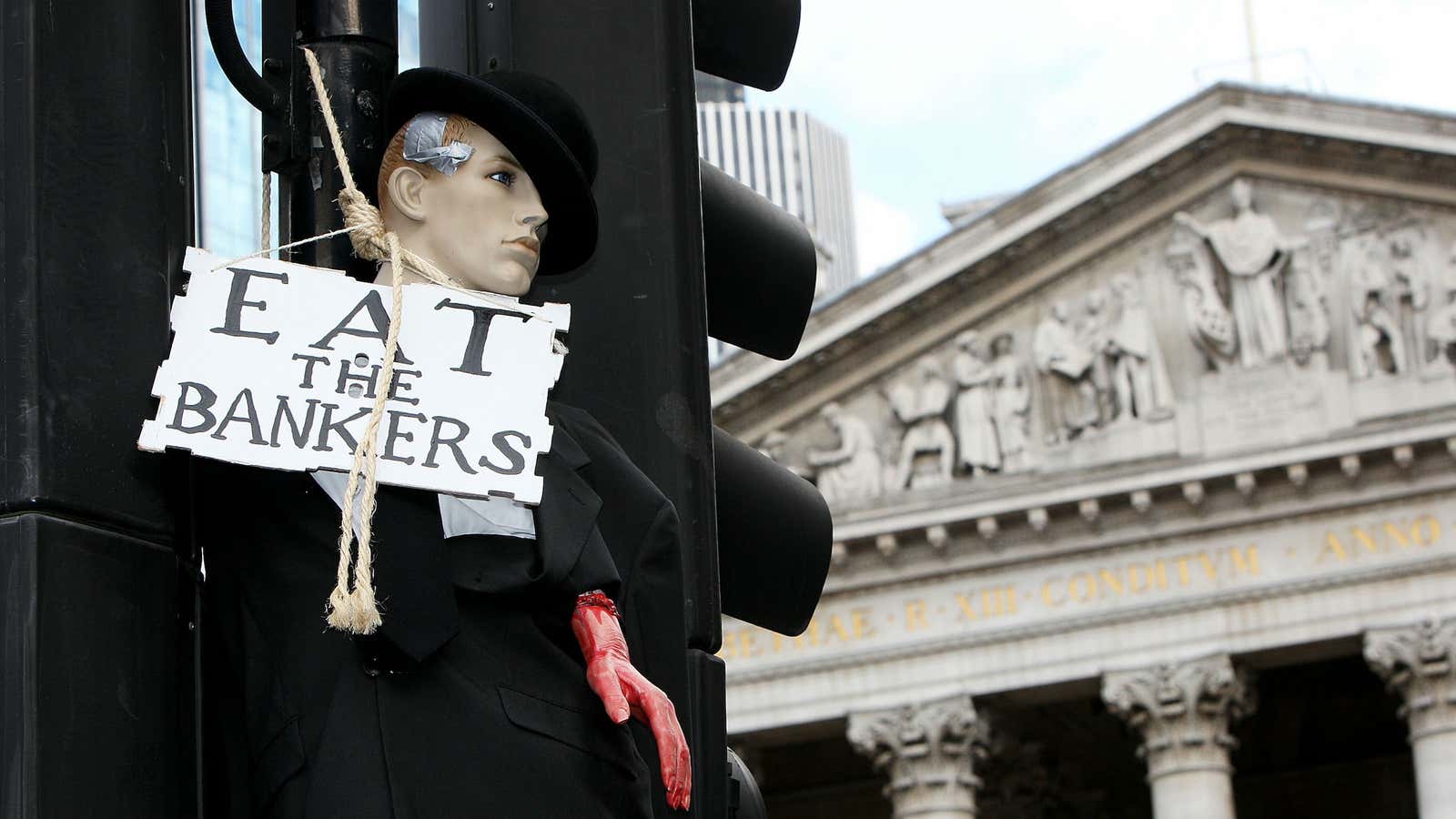British authorities are proposing that the government have the power to forcibly dismantle UK-incorporated banks that don’t insulate their retail operations from their riskier investing arms. That’s according to British chancellor George Osborne, speaking before the government’s banking reform bill is submitted to Parliament today.
What’s notable is that British authorities appear willing to go farther with the idea of separating banks’ investment and retail businesses to reduce risk and protect customers than their American and European Union counterparts. The impact of separating bank operations in British banks, an idea first posed by an independent commission in 2011, has been compared to the Glass Steagall Act in the US, whose partial repeal in 1999 is sometimes blamed as the cause of the 2007-08 financial crisis.
Osborne said today, “If a bank flouts the rules, the regulator and the Treasury will have the power to break it up altogether—full separation, not just a ring-fence. In the jargon, we will ‘electrify the ring fence.'” (See a transcript of his speech here.) In contrast, a similar measure in the US, the Volcker rule, is expected to include exemptions and extensions that allow banks to keep their private equity investment arms for as long as a decade. Brussels, which is considering ring-fencing measures for upcoming reform, recently signalled it may go easier on banks (paywall), making sure to avoid “penalizing” lenders that support the economy.
Curiously, the move is also a shift in tone for Osborne’s Conservative party, which has typically aligned itself closer to the country’s banking industry. Osborne previously warned against “unpicking the consensus” on how to reform the British banking sector. Both he and David Cameron, the prime minister, have argued that banks should have several years to build Chinese walls between the operations or else London’s appeal as a global financial center would fade.
The reason for the shift? Perhaps public anger, which Osborne mentioned no fewer than nine times in his speech. The UK economy is in its worst GDP slump in a century. Much blame, rightly or not, is being heaped on British banks that required multi-billion dollar bailouts as well as those who sold risky financial products to unsuspecting British residents. A Bank of England official said in December that banks had exacted a toll on the country “more devastating“ than a world war. ”Irresponsible behavior was rewarded, failure was bailed out, and the innocent—people who have nothing whatsoever to do with the banks—suffered,” Osborne said. “That’s why five years on from that crash, people are still so angry.”
It’s hard to say how exactly the UK’s reforms will play out yet. For the next six months banks and other related parties will comment on the bill. So far the details include dividing the industry’s regulator, the UK Financial Services Authority, into two units and requiring banks to have different bosses for their retail and investment businesses. Osborne says he expects legislation to be passed within a year. The Treasury has said it will begin implementing new rules by 2019.
